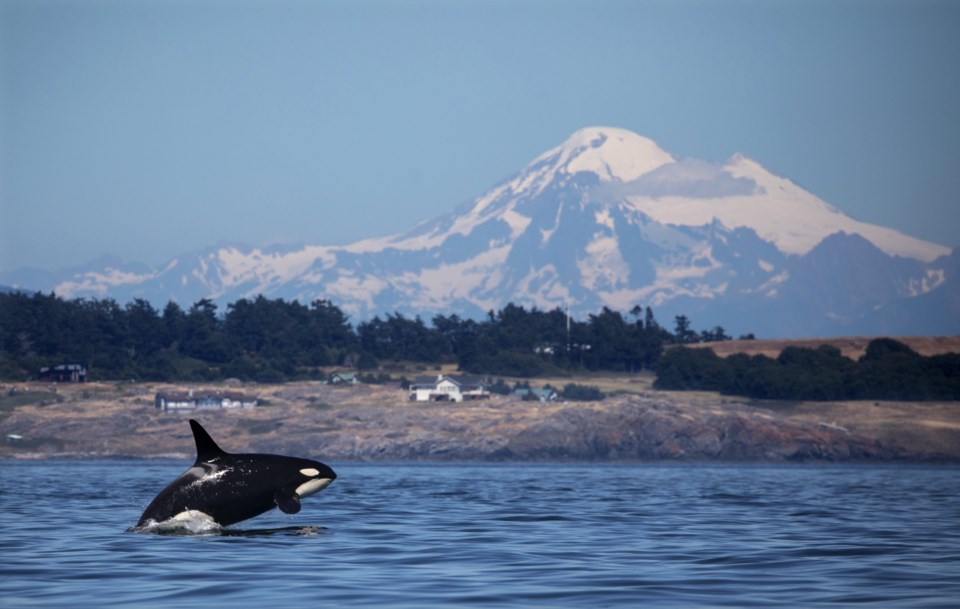Researchers can now better listen in on at-risk whales and their environment thanks to funding for the acquisition of a mobile self-contained hydrophone buoy by the Victoria Foundation.
Straitwatch is a stewardship program operated by the Cetus Research and Conservation Society.
The initiative monitors endangered southern resident killer whales and collects data on physical and acoustic vessel traffic disturbances. The program operates in the Salish Sea, primarily off Victoria and the Southern Gulf Islands.
“Thanks to the Victoria Foundation, Straitwatch can utilize its unique position on the water to deploy a mobile hydrophone. This program will allow us to better capture the daily reality for the southern residents,” said Emily Perkovic of Straitwatch.
Cetus crews on the water will deploy the newly acquired hydrophone buoy in the vicinity of whales twice daily to document whale calls and vessel noise during whale-watching activity.
Mobile hydrophone monitoring will take place while directly observing vessel and whale activities.
The data collected, in addition to data from other listening stations, will contribute to a significantly greater understanding of the direct and immediate impacts of vessel disturbance on the at-risk mammals.
This, in turn, will add to the body of evidence necessary to support meaningful and effective protections for at-risk marine mammals, with a focus on killer whales and humpbacks.
Research by the society indicates the majority of vessel incidents with southern resident killer whales occur with both whale-watching and recreational boats.
The waters off Victoria are one of the highest-density whale-watching areas in the world. During peak viewing times (from May to September), there can be more than 50 vessels following a single pod of whales.
British Columbia has a number of cetacean species considered endangered or at-risk.
The most urgent crisis is facing the southern resident killer whales, whose number has fallen to 73.
Along with monitoring and research, Straitwatch crews educate boaters about the risks their vessels pose to whales. They can directly intervene to ensure a safe perimeter and encourage appropriate boating behaviour, such as adhering to recommended Be Whale-Wise guidelines.
For more information, go to cetussociety.org.



